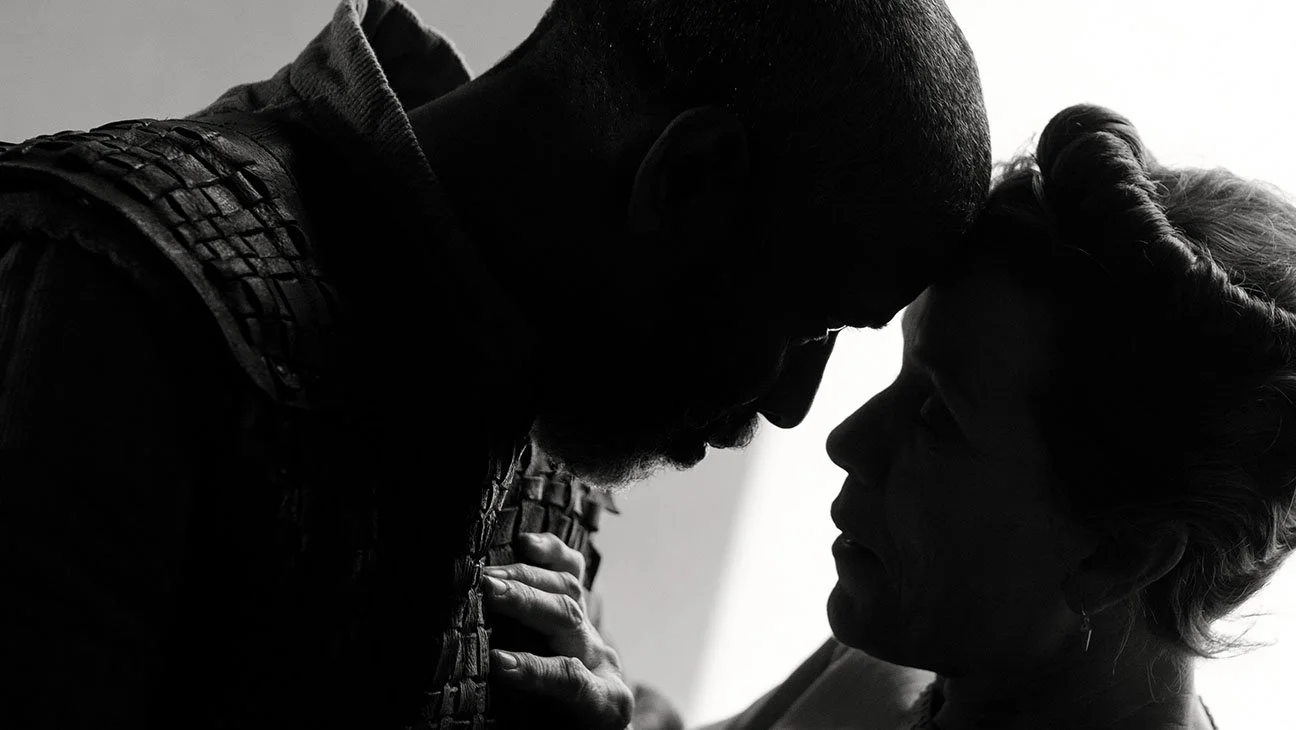Film review: The Tragedy of Macbeth builds a stark and gripping monochrome world
Joel Coen draws out note-perfect performances amid a bleak setting of archways, smothering fog, and cawing crows
Denzel Washington and Frances McDormand get dark as the blood-thirsty power couple in The Tragedy of Macbeth.
The Tragedy of Macbeth opens at movie theatres on December 25
Powerful acting is at the centre of Joel Coen’s perfectly desolate new Tragedy of Macbeth, but can we start by talking about its stark and stylized mood?
Captured in luminous black and white, long archway corridors, boxy interior courtyards, and shadowed staircases look like the collective designs of M.C. Escher, Robert Wiene, and Le Corbusier. The few times the action moves outside, it’s on a rocky Scottish moor so misty with smothering “fog and filthy air” that characters seem to appear from and disappear into the void, black crows cawing and flapping above.
The gloomy world is perfectly suited to the moral emptiness of the Shakespearean tale where “Fair is foul and foul is fair.” Coen creates some riveting yet simple effects: in the “Is this a dagger which I see before me?” scene, Macbeth (an intense and complex Denzel Washington) moves toward a knife-shaped glare of metal that floats at the end of a long corridor; as he nears it, the trompe l’oiel reveals itself as a door handle. In another scene Lady Macbeth (Frances McDormand) lights a letter from her husband on fire and it floats out, burning, into an endless starry night.
A creepy highlight is raspy-voiced Brit theatre veteran Kathryn Hunter as the witchy Weird Sisters. In the famous first scene, she’s a withered crone who contorts her limbs in unsettlingly inhuman ways. And the “Double, double toil and trouble” scene? Coen brilliantly reimagines the cauldron as Macbeth hallucinating a kind of courtyard-pool mirage. Wait till you see the “toe of frog”.
The elements are suitably heightened for a world that’s in disorder, but the performances are firmly grounded in reality. McDormand’s chemistry with Washington makes their pact emotionally charged, her mocking of his manliness nuanced. And Washington, though he occasionally rushes his lines, makes an arresting transition from unsure army general to unhinged powermonger; you can see King Duncan’s murder eating him from the inside. Every side character feels integral here. Alex Hassell’s cynical, conniving Ross is ever watching the action to see how he can spin it to his own advantage. Brendan Gleeson imbues the trusting Duncan with a quiet and melancholy nobility. Corey Hawkins’s Macduff builds to an outraged, grief-wrecked crescendo.
The filmmaker emphasizes the tightening grip of evil—the slaughter of trusted friends and even children. But he suggests the violence in ways that play out more psychologically than in typically graphic Coen Brothers style. Notably, it’s restraint—near austerity—that makes this one of the best film renditions of Shakespeare’s bleak tragedy. Coen tightens it to a quick and gripping hour and 45 minutes.
Whether you feel like a trip into this desolate, morally corrupt universe right now—in the middle of our own disordered world, during not-so-merry Christmas lockdowns, no less—is another question. But should you work up the courage to head out to see this Macbeth on the big screen as it deserves, you’ll marvel at what happens when Shakespearean tragedy meets Coen-esque darkness.














